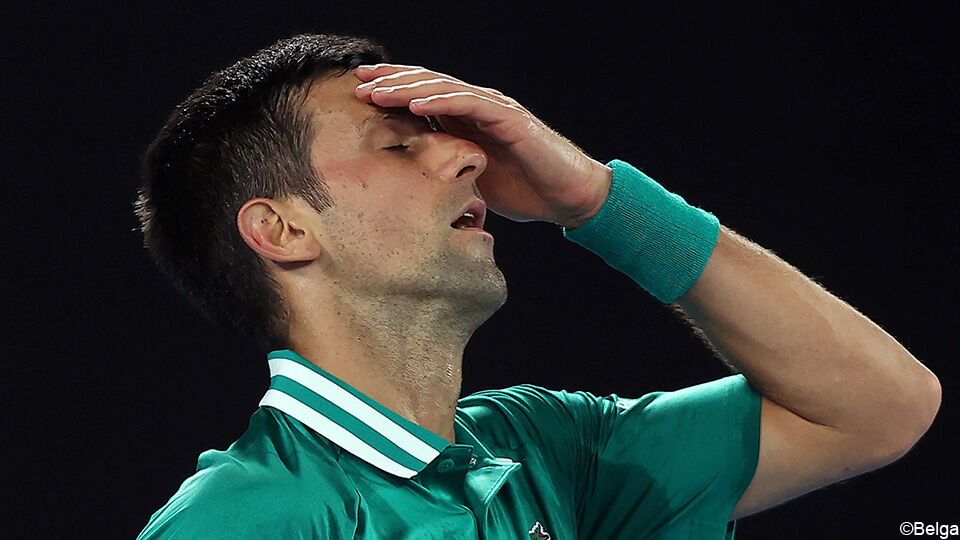What significance has the uproar surrounding Hadia Tajik had for the Labor Party? There was an unusually high level of tension associated with Dagsavisen’s monthly poll, which was conducted in the period 2 to 7 March. That is, from the day former Minister of Labor Tajik resigned, to the day it was clear that she had also resigned from the post of deputy leader.
The alarm must sound deafening in the Center Party, which since August last year has received bad news at every single poll.
The noise around the Tajik could weigh on the party in the polls, but the Labor Party is not punished for the handling. And perhaps the relatively good poll with progress of 1.8 percentage points, can mean that voters actually support the outcome.
The unrest around the party and the government is obviously balanced by the fact that Prime Minister Jonas Gahr Støre is a secure leader for the country in internationally turbulent times. Keeping order in his own party organization is neither his strength nor his interest. It is now that he is shown his orientation and format. The Labor Party’s growth in the polls is moderate, but there is reason to believe that progress in the polls will continue in a continuing crisis in Europe.
The case continues during the video.
[ Hege Ulstein: Tåler Ap 14 måneder med nestlederstrid, for ikke å snakke om lederstrid? . ]
Støre has more than indicated that he thinks the question of Hadia Tajik’s fate has taken up too much space in the Norwegian public when the world is on the brink of disaster in Ukraine. Støre has used the term a «perspective shift».
The Labor Party is still well behind the election result. In this survey, Støre’s crew is 2.7 percentage points behind the people’s verdict in September. The Conservatives, on the other hand, are constantly rising and are 6.5 percentage points above the level at the election. The two traditional governing parties now have more than half of the people behind them, for the first time since August 2020.
[ Hvorfor kan ikke kvinner bare være mer som menn? ]
The question of our relationship with NATO strikes a chord with public opinion. The traditional opponents of the alliance are beaten in the poll. SV is down by 1.6 percentage points. The party is in a security policy split, where arms shipments to Ukraine split the party’s leadership. The national government said no, the party’s leading profiles said yes. Among them, Audun Lysbakken leads. And now the party’s fundamental NATO no is at stake.
Red has been the clearest political voice against sending weapons and to NATO. It sends the party strongly back after a February survey that gave record support of 10.3 percent. The party drops to 8 percent, which are still historically good numbers for the far left party. But months of successive climbing are over.
[ Strømprisene bidrar til en ubehagelig følelse av avmakt i det norske samfunnet. ]
The red-green majority is getting weaker and weaker. From an overwhelming mandate from the voters this autumn with 100 representatives on the non-bourgeois wing, the number has now been reduced to 89. 85 representatives give a majority in the Storting. The distance between the blocks has not been smaller in almost four years. The Labor Party’s position has improved in recent months. But the same cannot be said of the government colleague the Center Party.
The alarm must sound deafening in a party that since August last year has received bad news at every single poll. 19.2 percent support the month before the election, has shrunk to today’s 7.5. Minister of Finance Trygve Slagsvold Vedum is invisible and the guarantee that the price of petrol should not exceed 20 kroner, is worthless as Russian rubles. Vedum’s political reality has disappeared in the circumstances.
Vedum’s Minister of Defense Odd Roger Enoksen has not dominated the news picture, despite the obvious opportunity. Many of the other government colleagues are also invisible, and the party is struggling to speak in public. City and country contradictions and challenges in the districts are quickly forgotten when the gaze is forced up and out. It is difficult to see how the party will become relevant again in the short term.
The war in Ukraine will shape Norwegian politics in the foreseeable future. Inflation and the war economy will affect the nation and the wage settlement. And soon we will be a country with a large delegation of refugees for whom to settle and create lives. It has gone well before, but we also know that friction is the fertilizer for populism.
Keep yourself updated. Receive a daily newsletter from Dagsavisen
–
:quality(70)/cloudfront-eu-central-1.images.arcpublishing.com/mentormedier/IPKDBTSDXZGZHO3HHJR3ONTFEA.jpg)

